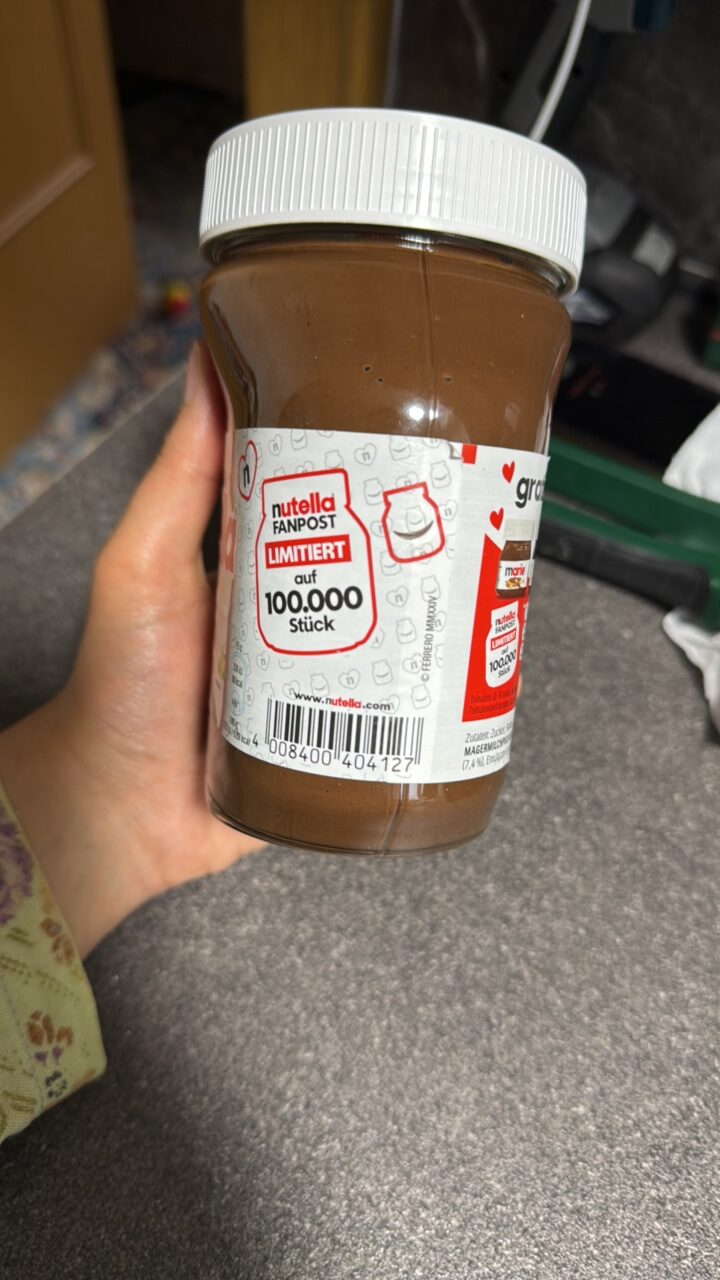
Barcode: 00040440
Nutella
DOUBTFUL
📝 Reason: Check for Halal Logo
📄 Certificates: None
Ingredients:
Details
Understanding Nutella and Its Halal Status
Nutella, the beloved hazelnut spread, is a staple in many households around the world. However, for Muslim consumers, it’s vital to understand the Halal status of products they consume. In this article, we will delve into the ingredients of Nutella and assess its Halal status.
Nutella’s Halal Status: Doubtful
The current Halal status of Nutella is classified as doubtful. While some ingredients may be naturally Halal, the presence of specific ingredients raises concerns. It is recommended to check for a Halal logo on the packaging before consumption.
Breaking Down Nutella’s Ingredients
Nutella’s key ingredients are as follows:
- Mono-and Diglycerides of Fatty Acids
- Lecithin
- Sugar
- Hazelnuts
- Cocoa
- Skimmed Milk Powder
Examining the E-Numbers and Their Halal Status
Nutella contains several components that are often scrutinized due to their sourcing and processing. Let’s take a closer look at these ingredients:
- E471: Mono-and Diglycerides of Fatty Acids – This ingredient is used as an emulsifier and may come from animal fats or vegetable sources. Its status is classified as doubtful due to the lack of transparency regarding its origins. More details can be found here.
- E322: Lecithin – Lecithin serves as an emulsifier and is typically derived from soybeans. It is marked as Halal, but consumers should verify the source to ensure no animal derivatives are present. Reference: here.
- Sugar – Naturally Halal and derived from plant sources, sugar does not pose any concerns for Halal consumers. More information is available here.
- Hazelnuts – These nuts are inherently Halal, making them a safe ingredient for consumers concerned with Halal compliance. More details can be found here.
- Cocoa – Cocoa is also considered naturally Halal, derived from cacao beans, which are plant-based. More information is available here.
- Skimmed Milk Powder – This ingredient carries a significant concern due to the potential for it to contain unknown animal sources. Its Halal status is deemed doubtful, making it essential for consumers to seek clarification on sourcing. Further details can be found here.
The Importance of Certification
Nutella currently lacks any Halal certification, which is crucial for Muslim consumers who wish to ensure the products they consume align with their religious beliefs. While its delicious taste is undeniable, the absence of Halal certification means that individuals who strictly observe Halal dietary laws should approach Nutella with caution.
Conclusion
In conclusion, while some components of Nutella are considered Halal, significant doubts concerning its overall Halal status arise due to certain ingredients and the absence of certification. It is always advisable for consumers to research and verify the Halal status of products individually. When in doubt, checking for a Halal logo or contacting the manufacturer directly is a prudent course of action. Enjoying Nutella is possible, but always proceed with mindfulness regarding Halal consumption.

